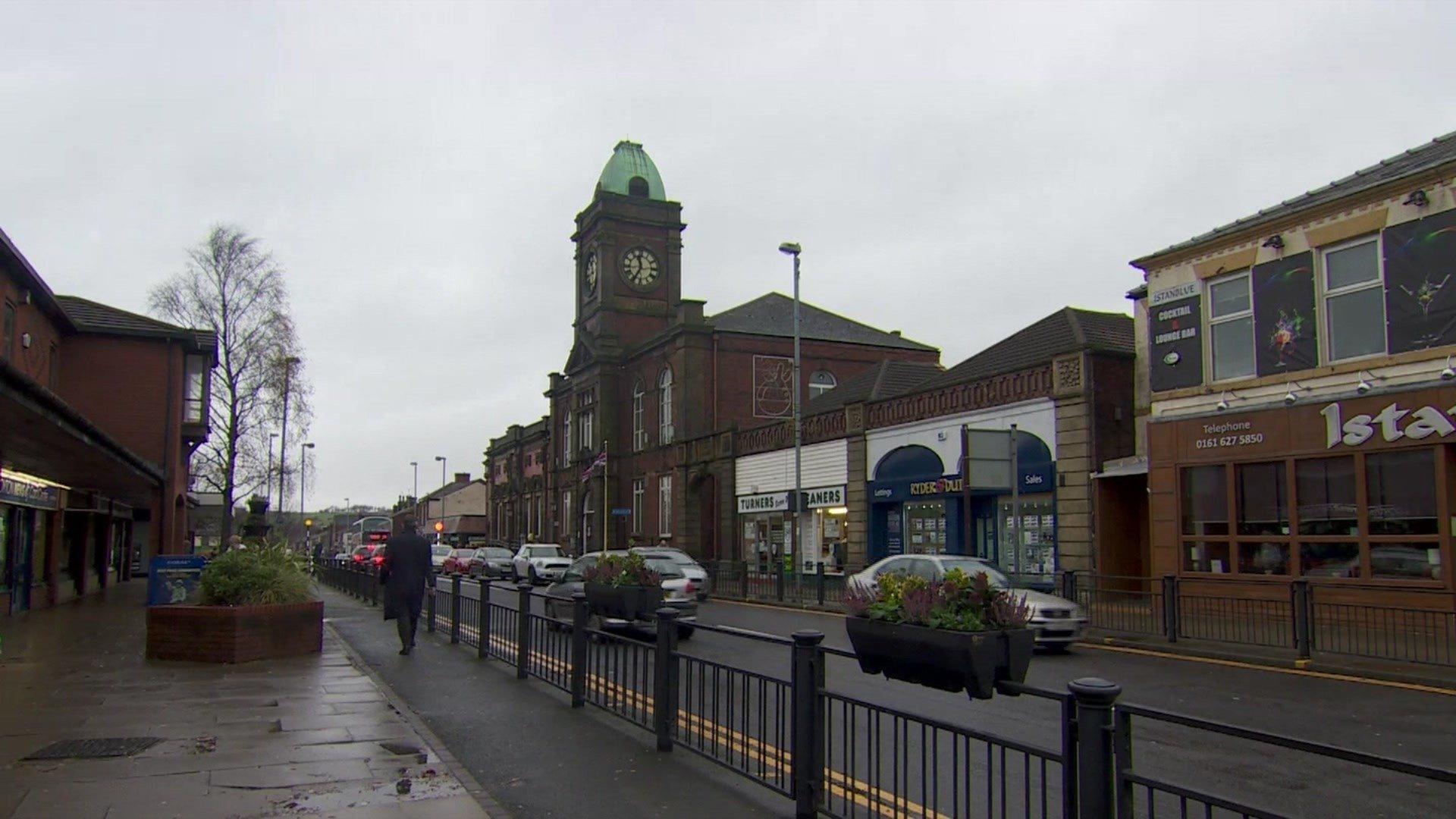The sweet history of the secret ballot box
- Published
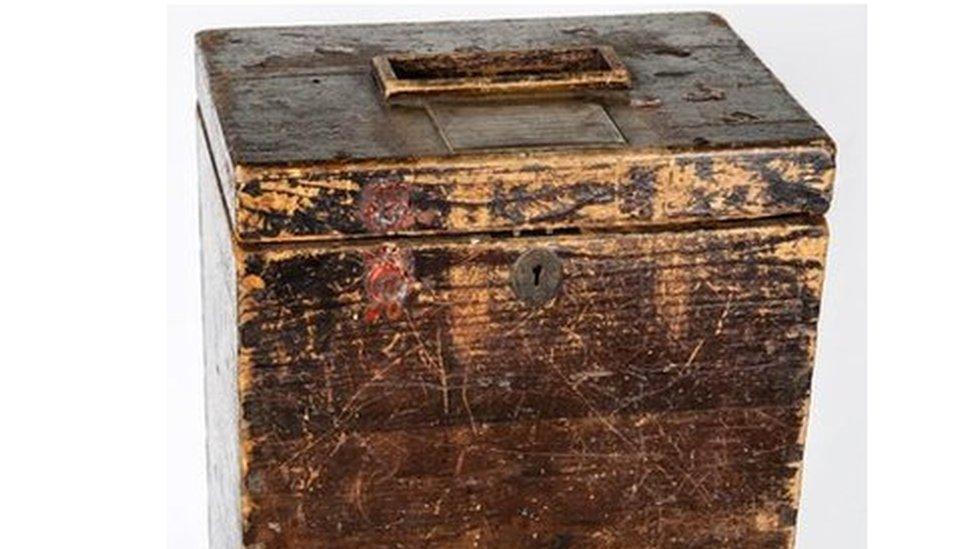
Ballot box used at the UK's first election by secret ballot in Pontefract, 15th August 1872
Putting an X on a ballot paper in a private booth and posting it into a box is something you and I take for granted.
But before 1872, the fifth of the adult male population lucky enough to be able to vote had to do so very publically.
They made their choice by a show of hands, stating their choice out loud, or marking their paper in front of people, often surrounded by cheering onlookers and the agents of the candidates. The answer was written down and the lists or "poll books" could be bought from local newspapers.
This public system of voting had left electors wide open to bribery and intimidation, for example mobs might be brought to polls to bully the voters. In contrast elections could be like a party, where candidates 'rewarded' their voters with large amounts of alcohol.
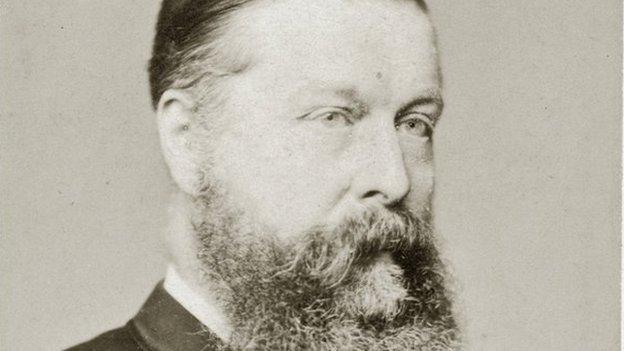
British statesman Hugh Culling Eardley Childers (1827 - 1898)
Despite opposition from those who considered secret voting to be "unmanly" and "un-English", the Ballot Act of 1872 introduced the ballot box to counteract bribing of voters.
Pontefract was the first town to vote in private when its Liberal MP Hugh Childers was newly appointed as a minister and the rules back then meant he had to win a by-election in order to serve.
Much like today, the voters of the Pontefract by-election were provided with separate booths where they could mark their paper in private and post it into the ballot box.
The boxes were specially made for the occasion and were marked with a wax seal to make sure no one tampered with the votes. Charmingly, the seal was made with a traditional liquorice stamp of a castle and an owl from a local factory where they used them to stamp Pontefract cakes.
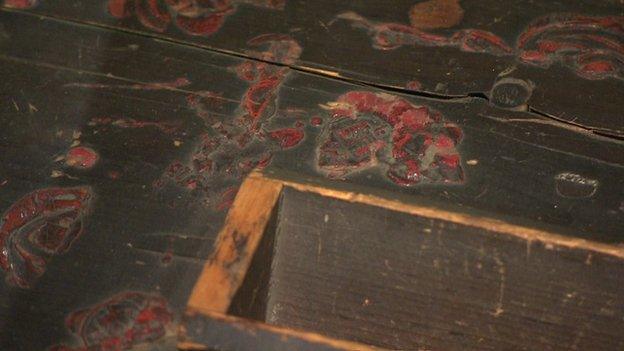
Seals on the 1872 ballot box were made with a liquorice stamp from a nearby Pontefract cake factory
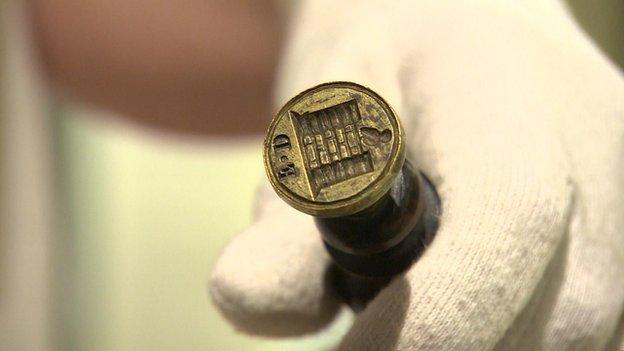
Liquorice stamp featuring Pontefract castle and owl, from Pontefract Museum
Interest in the 1872 by-election was high because there was a suspicion that, now voters were able to make their choice in secret, support for the parties might be drastically different. However when the votes were counted, and the results announced at the Town Hall, Hugh Childers was elected just as expected.
Unsurprisingly Childers was among the many people who were impressed with the new ballot boxes, and he was right to be - for once there were no allegations of bribery or corruption and not even that much unruly behaviour.
Observers said they had never seen "a contested election in which less intoxicating liquor was drunk', and that the town was so quiet and orderly that "it hardly seemed like an election" at all.
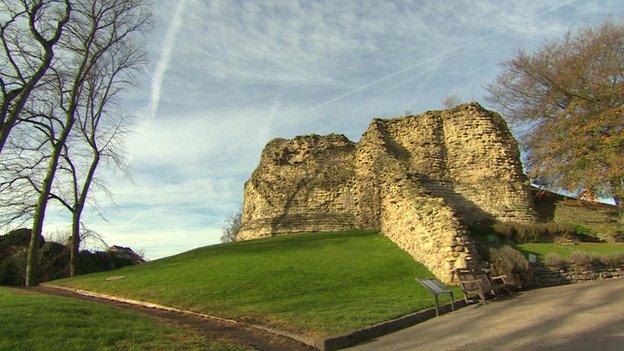
What remains of Pontefract Castle today
- Published27 November 2015
- Published2 December 2015
